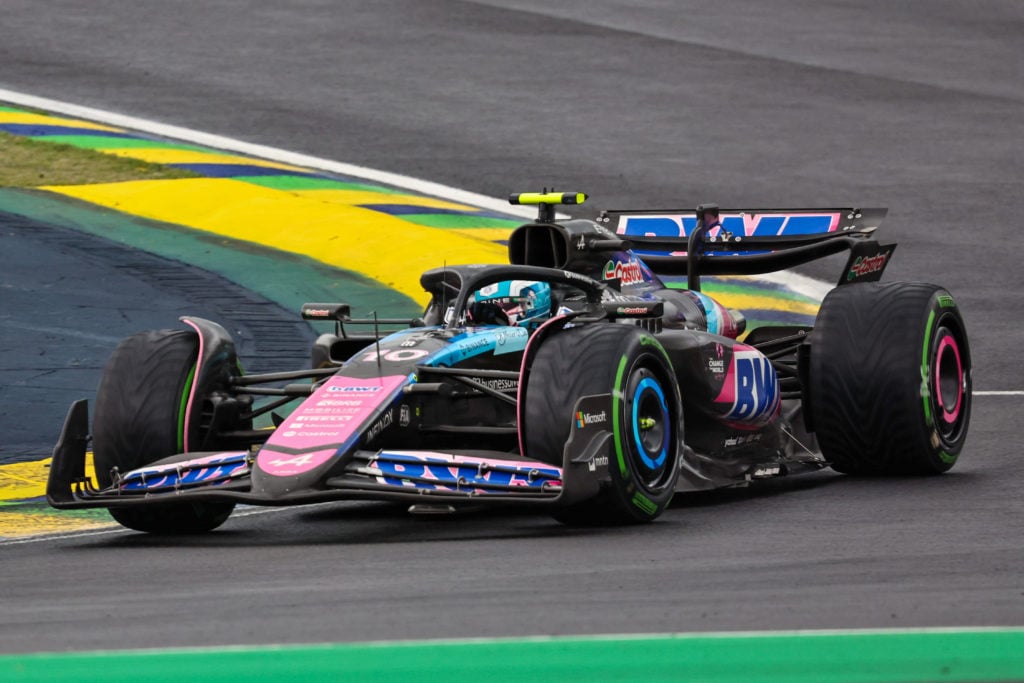Alpine is set to run Mercedes power units from the 2026 season after parent company Renault made the decision to shut down their F1 engine project due to mounting costs.
It was long rumoured that Renault was considering pulling the plug on its engine project amid losses in the French car company stemming from a difficult COVID period. CEO Luca de Meo said Renault needed to ‘rethink’ its F1 project, which effectively led to cuts and reallocation of staff resources.
Staff at Alpine’s Viry Chatillon plant, which has been designing and building F1 engines since the 1970s, will not produce F1 power units after the 2025 season and the plant will be transformed into Hypertech Alpine.
Some figures within F1 noted how the closure was disappointing from Alpine, including former driver Romain Grosjean who branded Renault’s decision ‘sad’ after racing with them in 2009 and latterly in 2012 and 2015.
Discussing why they have decided to go with Mercedes power units for the 2026 season, team principal Oliver Oakes explained on the recent Beyond the Grid podcast.

Mercedes success after regulation changes a main factor in Alpine engine deal
The last time the Enstone-based team ran Mercedes engines was back in 2015 under its Lotus guise, with their best result being podium at the Belgian GP after Renault permitted Grosjean to activate a ‘secret’ engine mode.
The deal will see them use Mercedes power units and gearboxes when the next big regulation cycle comes into effect in two years when the cars will also adopt active aerodynamics.
Some paddock insiders were left wondering why other teams like Audi or Ferrari did not want to supply Alpine, given the competitive benefits it could bring.
Mercedes has been one of the most successful power unit manufacturers of the hybrid era, and Oakes believes the decision was justified by their recent success with McLaren, who they also supply engines to on the F1 grid.
“You can’t be dead sure, because nothing ever is, but you have to be pragmatic. I don’t know the full ins and outs of the decision because it was slightly before I started, but if I were to pick it, I’d probably turn around and say history does show that every time there has been a regulation change they have been strong,” said Oakes.
“At the moment, the Mercedes powertrain is in the back of a customer who is fighting for a world championship. So there are a few boxes where you go ‘I’m going to take a pragmatic choice and they fit the box quite perfectly’.”
Mercedes success in the Hybrid F1 era unmatched by rivals
Mercedes has been the most successful power unit supplier out of the four main engine makers since the hybrids were introduced in 2014.
The team started work on their power units as early as 2011, effectively swaying a lot of the technical regulation decisions leading up to their introduction.
| Engine supplier | Wins |
| Mercedes | 122 |
| Honda (Inc. RBPT) | 63 |
| Ferrari | 27 |
| Renault | 4 |
They were so far ahead of the competition that it took Ferrari three seasons to challenge for championships, while Renault never managed to rid themselves of their 20bhp deficit.
Mercedes holds the record for most wins in the hybrid era from an engine manufacturer, while Renault has only won four Grands Prix with their most recent being at the 2021 Hungarian GP.

